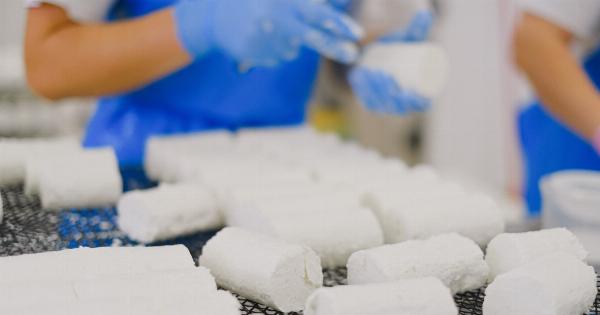Bananas have long been one of the most popular and widely consumed fruits across the globe. They are packed with essential nutrients, provide instant energy, and are loved by people of all ages.
However, the moment they start ripening, bananas quickly lose their appeal. They develop dark spots, soften, and eventually turn into a mushy mess, making it challenging to consume them in their optimal state.
In recent years, scientists and researchers have made significant progress in genetic manipulation, aiming to enhance the durability and shelf life of bananas through genetic modification.
These genetically modified bananas, often referred to as long-lasting bananas, offer numerous potential benefits for both consumers and producers.
In this article, we will delve into the fascinating advancements in genetic manipulation that have led to the development of these long-lasting bananas, explore the benefits they offer, and acknowledge the controversy and potential impact surrounding genetically modified fruits.
Advancements in Genetic Engineering Techniques
Genetic engineering techniques have enabled scientists to make precise modifications to the DNA of various organisms, including fruits like bananas.
By identifying and manipulating specific genes responsible for the rapid deterioration of bananas, researchers have been successful in developing genetically modified fruits that exhibit increased shelf life. These advancements aim to overcome the limitations posed by natural ripening processes and bring about an era of long-lasting bananas.
Bananas Engineered for Longevity
Bananas, like many other fruits, are affected by the synthesis and release of ethylene gas as they ripen. Ethylene triggers several physiological changes, leading to the softening and eventual spoilage of the fruit.
To address this issue, scientists have focused on modifying the genes responsible for ethylene production and response.
Delayed Ripening Genes
One genetic modification technique involves the incorporation of genes that delay the ripening process.
By introducing genes from other organisms, such as bacteria or other fruits, scientists have been able to extend the time it takes for bananas to ripen after being harvested. These modified genes effectively suppress the expression of enzymes involved in ripening, resulting in a slower and more controlled maturation process.
Enhanced Shelf Life
Another approach involves manipulating the genes responsible for the breakdown of cell walls and the degradation of starch and sugars in bananas.
By suppressing these genes, scientists have successfully developed bananas that exhibit delayed fruit softening and have an extended shelf life. These modifications enable the fruits to retain their firmness and freshness for a more extended period, allowing consumers and producers to enjoy the benefits of long-lasting bananas.
Benefits of Genetically Modified Bananas
The development of long-lasting bananas has numerous potential benefits, ranging from reducing food waste to ensuring food security and enhancing nutritional value. Let’s take a closer look at some of these advantages:.
1. Reduced Food Waste
One of the significant advantages of long-lasting bananas is the reduction in food waste. Traditional bananas often spoil quickly, leading to substantial losses for farmers, distributors, and consumers.
With genetically modified bananas, this spoilage can be significantly minimized, allowing more bananas to reach consumers and fewer resources to go to waste.
2. Extended Accessibility
Long-lasting bananas provide a solution to the challenges faced in remote areas, where access to fresh produce is limited. The prolonged shelf life of these bananas allows them to be transported over longer distances without significant deterioration.
This extended accessibility can benefit communities that struggle with limited access to a variety of fresh fruits and vegetables.
3. Enhanced Nutritional Value
Another potential benefit of genetically modified bananas is the ability to enhance their nutritional value.
Through genetic manipulation, scientists can modify the nutrient composition of bananas, potentially increasing their levels of essential vitamins, minerals, and other beneficial compounds. This innovation holds the promise of developing bananas with improved nutritional profiles to better meet specific dietary needs.
Controversy Surrounding GMO Bananas
Despite the potential benefits, the development and commercialization of genetically modified bananas have ignited significant controversy.
Critics of genetically modified organisms (GMOs) have raised various concerns regarding their safety, environmental impact, and ethical implications.
1. Safety Concerns
One of the main concerns surrounding genetically modified bananas is their safety for human consumption.
Skeptics argue that altering the natural genetic makeup of an organism may introduce unforeseen allergens or toxins, potentially posing risks to human health. Rigorous testing and regulatory oversight are necessary to address these concerns and ensure the safety of GMO bananas before they become widely available.
2. Environmental Impact
Genetically modified crops have faced criticism due to their potential impact on the environment. Concerns include cross-pollination with wild or non-GMO varieties, leading to the unintended spread of modified genes.
This could have unforeseen consequences on biodiversity and ecological balance. Proper management practices and regulations must be in place to mitigate any negative environmental effects associated with the cultivation of genetically modified bananas.
3. Ethical Considerations
Ethical concerns regarding genetic manipulation extend beyond potential health and environmental risks.
Some individuals argue against altering the natural genetic makeup of organisms, raising questions about the boundaries of human intervention in the natural world. Striking a balance between scientific advancements and ethical considerations is crucial to ensure responsible and sustainable use of genetic engineering techniques.
Future Implications: Balancing Progress and Responsibility
The development of long-lasting bananas represents just a fraction of the advancements made possible through genetic manipulation.
As technology continues to evolve, it is important to carefully consider the potential long-term effects of genetically modified fruits and prioritize sustainable agricultural practices.
Finding the right balance between progress and responsibility is crucial. Genetic engineering techniques have the potential to revolutionize crop production, improve food security, and address global challenges.
However, it is essential to conduct extensive research, engage in transparent dialogue, and establish robust regulatory frameworks to ensure the safe and responsible development of genetically modified fruits.
The Future of Bananas: A Balanced Approach
Long-lasting bananas offer exciting possibilities for reducing food waste, enhancing nutritional value, and improving accessibility to fresh produce.
However, it is essential to address the concerns and controversies surrounding genetically modified organisms. Striving for a future where long-lasting bananas are developed responsibly, with safety, sustainability, and ethical considerations in mind, will help pave the way for a more secure and nourished global population.































